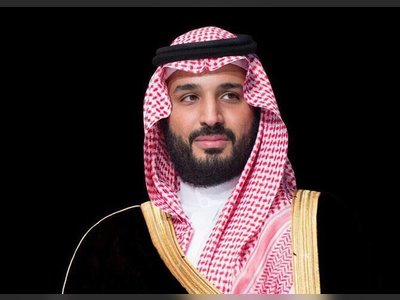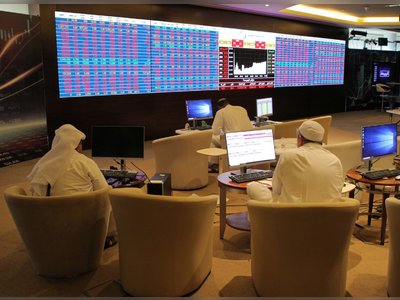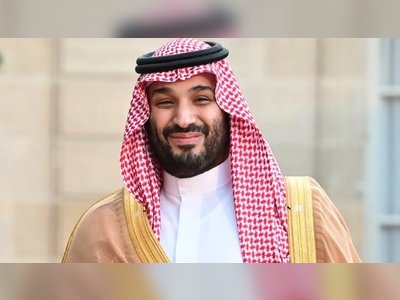
Iran and the U.S.: New Negotiations Amid Tensions
Responses within Iran reflect a mixture of optimism and caution as talks regarding the contentious nuclear program are set to resume through Oman.
In a significant diplomatic development, negotiations regarding Iran's contentious nuclear program are set to resume, with both the U.S. and Iran signaling a renewed willingness to engage through Omani mediation.
This follows a turbulent period marked by heightened tensions and aggressive rhetoric from both sides.
Former Iranian President Hassan Rouhani has advocated for direct negotiations with the United States as a means to achieve a breakthrough in the complex nuclear discussions.
He emphasized that direct communication between leaders was crucial during the initial nuclear deal process and expressed a desire for unity among Iranian officials to strengthen Iran's negotiating position.
Mohammad Javad Zarif, the former Foreign Minister who played a key role in the 2015 nuclear negotiations, welcomed the appointment of Abbas Araghchi to lead the Iranian delegation.
He praised Araghchi's past negotiating capabilities and urged for a reciprocal commitment from the American side to facilitate a mutually beneficial agreement.
Zarif posited that the current discussions represent an opportunity for progress, stating, "The ball is now in America’s court."
In stark contrast, Iranian state media, particularly from the Noor News agency tied to the Supreme National Security Council, asserted that Iran holds the initiative, claiming that the conditions for the upcoming talks were set by Tehran, not Washington.
The agency noted concerns regarding Washington's portrayal of the negotiations and sought to clarify that Tehran is not negotiating under duress.
Fars News Agency, closely affiliated with the Iranian Revolutionary Guard Corps, expressed skepticism regarding the potential outcomes of the upcoming talks in Oman, observing fundamental differences between the two sides on negotiation formats.
Analysts within Iran have raised concerns regarding the timing of the discussions, particularly as the U.S. threatens to impose stricter sanctions should an agreement not be reached by a specified deadline.
U.S. President Donald Trump has firmly stated that the negotiations scheduled for Saturday in Oman will be direct, signaling a shift from the previously preferred indirect format favored by Iran.
Trump indicated caution, asserting that failure to reach an agreement could pose significant risks for Tehran.
The White House has confirmed that the discussions will be led by Steve Witkoff, Trump's special envoy for the Middle East.
U.S. officials have indicated expectations for a comprehensive dialogue focused on achieving a substantive nuclear agreement, while simultaneously warning of potential punitive measures to be enforced if talks do not yield results.
Israeli Prime Minister Benjamin Netanyahu has vocally opposed any agreement that does not ensure the dismantling of Iran's nuclear capabilities, suggesting military action as a viable alternative if negotiations stall.
His government continues to view Iran as a primary security threat and has called for an agreement reflective of those objectives.
As both nations prepare for the upcoming talks, analysts inside Iran suggest that while indirect negotiations may allow for less confrontational dialogue, there are significant risks involved concerning timing and adherence to previously established commitments.
This follows a turbulent period marked by heightened tensions and aggressive rhetoric from both sides.
Former Iranian President Hassan Rouhani has advocated for direct negotiations with the United States as a means to achieve a breakthrough in the complex nuclear discussions.
He emphasized that direct communication between leaders was crucial during the initial nuclear deal process and expressed a desire for unity among Iranian officials to strengthen Iran's negotiating position.
Mohammad Javad Zarif, the former Foreign Minister who played a key role in the 2015 nuclear negotiations, welcomed the appointment of Abbas Araghchi to lead the Iranian delegation.
He praised Araghchi's past negotiating capabilities and urged for a reciprocal commitment from the American side to facilitate a mutually beneficial agreement.
Zarif posited that the current discussions represent an opportunity for progress, stating, "The ball is now in America’s court."
In stark contrast, Iranian state media, particularly from the Noor News agency tied to the Supreme National Security Council, asserted that Iran holds the initiative, claiming that the conditions for the upcoming talks were set by Tehran, not Washington.
The agency noted concerns regarding Washington's portrayal of the negotiations and sought to clarify that Tehran is not negotiating under duress.
Fars News Agency, closely affiliated with the Iranian Revolutionary Guard Corps, expressed skepticism regarding the potential outcomes of the upcoming talks in Oman, observing fundamental differences between the two sides on negotiation formats.
Analysts within Iran have raised concerns regarding the timing of the discussions, particularly as the U.S. threatens to impose stricter sanctions should an agreement not be reached by a specified deadline.
U.S. President Donald Trump has firmly stated that the negotiations scheduled for Saturday in Oman will be direct, signaling a shift from the previously preferred indirect format favored by Iran.
Trump indicated caution, asserting that failure to reach an agreement could pose significant risks for Tehran.
The White House has confirmed that the discussions will be led by Steve Witkoff, Trump's special envoy for the Middle East.
U.S. officials have indicated expectations for a comprehensive dialogue focused on achieving a substantive nuclear agreement, while simultaneously warning of potential punitive measures to be enforced if talks do not yield results.
Israeli Prime Minister Benjamin Netanyahu has vocally opposed any agreement that does not ensure the dismantling of Iran's nuclear capabilities, suggesting military action as a viable alternative if negotiations stall.
His government continues to view Iran as a primary security threat and has called for an agreement reflective of those objectives.
As both nations prepare for the upcoming talks, analysts inside Iran suggest that while indirect negotiations may allow for less confrontational dialogue, there are significant risks involved concerning timing and adherence to previously established commitments.











